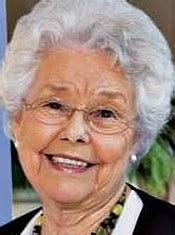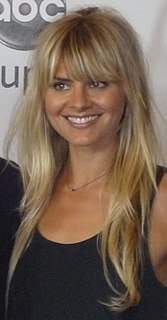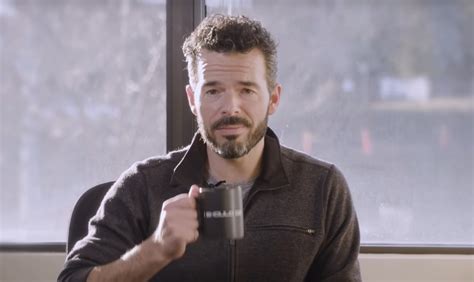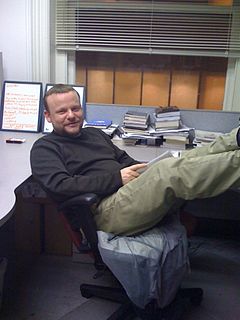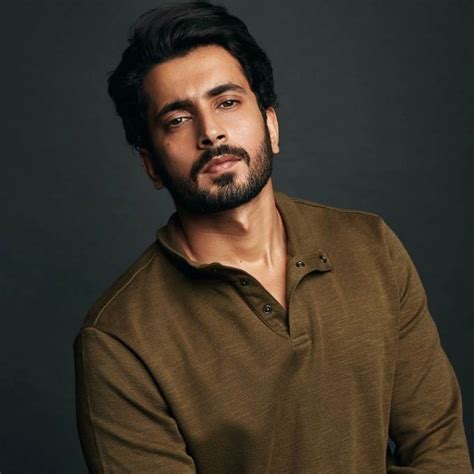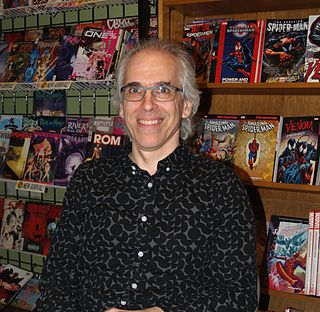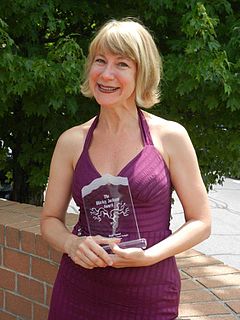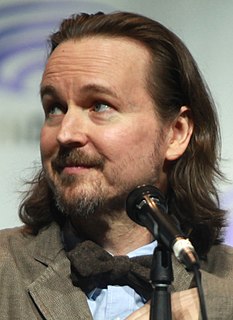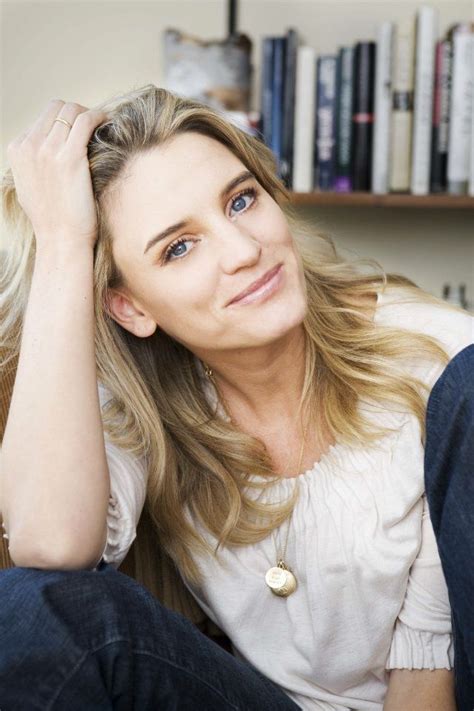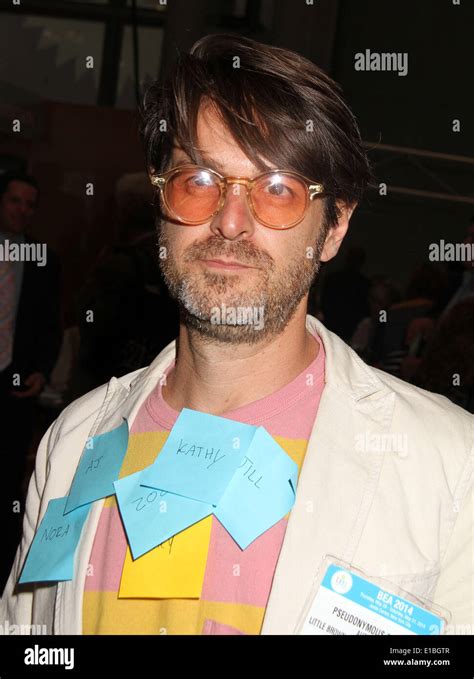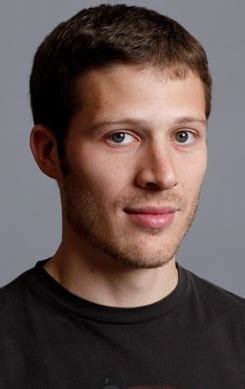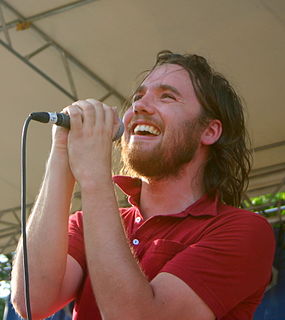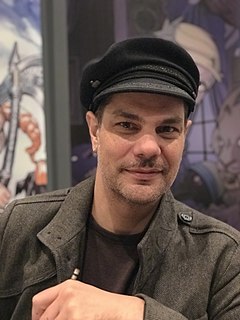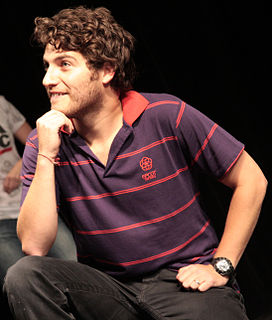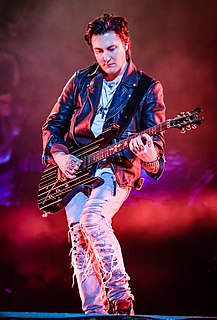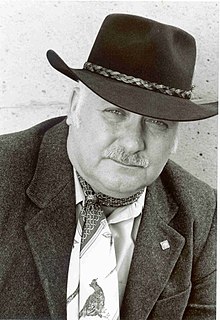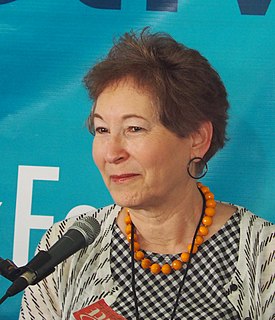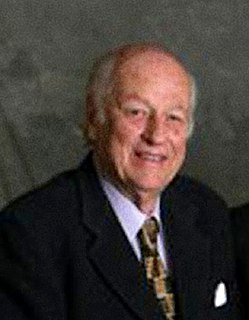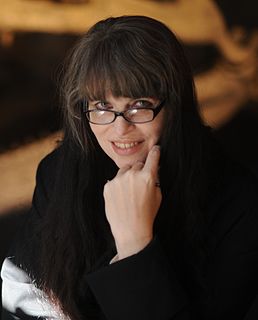Top 436 Endings Quotes & Sayings - Page 7
Explore popular Endings quotes.
Last updated on December 12, 2024.
We've all heard stories about poker players grinding it out for two days straight. Believe me; I've got stories like that of my own. But the bottom line is that these stories usually don't have great endings. That's because the mind starts playing tricks after a marathon poker session, especially after a losing session.
If ever there were a true "just as I am" church, if ever there were a community where everybody could bring all their baggage and brokenness with them without neat and tidy happy endings quite yet, if ever there was a group where everyone was loved and no one pretended - we could not make enough room inside the building.
Thoughts are no more than electrical surges in the brain. Sexual arousal is no more than a flow of chemicals to certain nerve endings. Sadness is no more than a bit of acid transfixed in the cerebellum. In short, the body is a machine, subject to the same laws of electricity and mechanics as an electron or clock.
When I first began to have the initial idea for 'Heartsease,' I just wrote a skeleton story; that is, I started her off as this young, bright 16-year-old and then added the events that occurred and where she and other characters fitted in, even writing 3 different endings, as I was not sure where Mary's story would lead to.
I'd say I'm a pretty intense person. I'm definitely not my Denise character on 'Scrubs,' nor my Jane character on 'Happy Endings,' but I'm a mix of the two. I really feel that I'm kind of every character that I've ever played; it's just a part of me. And I am a bit of a control freak like Jane. I'm very, perhaps, obsessive like that.
When I write, I never know the endings. What I think works in [my] stories is the fact that when I write, I really want to find out what is going on-I'm writing for myself as a reader. It's like when you dream a dream. I want to know what's behind the door. If I navigate, it's from a place that's totally intuitive.
I could hear her babbling away beside me, but I wasn't really paying attention. I could barely focus on anything. My nerve endings seemed to have come alive; they almost jangled with anticipation I was going to see Will. Whatever else, I had that. I could almost feel the miles between us shrinking, as if we were at two ends of some invisible elastic thread.
That’s the thing with the young these days, isn’t it? They watch too many happy endings. Everything has to be wrapped up, with a smile and a tear and a wave. Everyone has learned, found love, seen the error of their ways, discovered the joys of monogamy, or fatherhood, or filial duty, or life itself. In my day, people got shot at the end of films, after learning only that life is hollow, dismal, brutish, and short.
It's more like there are some really obvious things that are different and then lots and lots of smaller things, lots of things about who lives and who dies, civilizations that rose and fell, all the way down to individual characters. That becomes the state of where you left your galaxy. The endings have a lot more sophistication and variety in them.
I do open endings on purpose. I expect a lot from my readers. I want them to do much of the work, because I believe that the story is built by the reader, not by the writer. I like having an open ending to a standalone fantasy, because it allows a continuing story to be written in the hearts of the readers.
The dictionary has been in the making for several decades, and the result is well worth the wait. MacLean and those who worked with her have consulted with Iñupiaq speakers from across Alaska's North Slope to compile a comprehensive collection of word stems, along with postbases, grammatical endings, and an array of other valuable material. . . . This dictionary will prove fascinating for anyone interested in the Iñupiat and their language.
Endings of television shows are sometimes such depressing things. I think shows that have more of a narrative and are about what's going to happen next, those need to wrap up as a complete story. But it's weird when a goofy comedy show needs to end, and we knew it was going to be the end, and sometimes it's just better if a comedy show ends and goes away and they never had a series finale.
Because I think of novels as collaborative enterprises between the writer and the reader, all of my novels so far have ending with endings that maybe point in more than one direction, and that seems important to me because it seems important to me that after you've invested twenty or thirty hours of your imaginative life into this narrative that you have some stake in how it ends.
The making of miracles to edification was as ardently admired by pious Victorians as it was sternly discouraged by Jesus of Nazareth. Not that the Victorians were unique in this respect. Modern writers also indulge in edifying miracles though they generally prefer to use them to procure unhappy endings, by which piece of thaumaturgy they win the title of realists.
The beauty of Christmas movies is that they make you feel like Christmas is actually the most wonderful time of the year. I don't love one particular movie, I'd rather say that all Christmas movies are great to watch during the festive season. They give a really good vibe and have happy endings most of the time, that's what I love.
I usually make up stories for my kids.I like to tell them stories and make up any kind of crazy to involve them in characters. The kind of fairytales I don't like are the ones with happy endings, where there's just good and evil and things are perfect. I think when there's a good story for children it has a moral tale, so that's what I try to teach my kids.
...This fear was unbearable. It unwrapped who she was, as neatly as he'd unwound her bandage, leaving too much pain and ugliness exposed. Nerve endings; he'd said they were the problem [causing phantom pain in the amputated limb]." Things that cut off, that ended abruptly or died--like parents and marriages--kept hurting forever.
A river is nearly the ultimate symbol for the very essence of change itself. It flows unceasingly from one point of being to another, yet continuously occupies the same bed or pathway, and accommodates life's endings with the same musical grace with which it accommodates life's beginnings, along with all the muted and explosive moments that surface between the two extremes.
Well, I'm drawn to stuff that is darker. I will probably do a version of Jane Austen at some point because her books are really well known. Unfortunately they've been parodied to death, but they're so well known that I feel like I should approach it and I think I have an idea that will definitely spin it in a different way. There's melancholy and sadness around the edges. I haven't read all of her books, but it seems they often have... essentially happy endings?
Stephanie Kallos's lovely and heartfelt first novel is a gift. A story of broken hearts and broken promises, it is also the story of the ways we put things back together-messily, beautifully, and ultimately triumphantly. Kallos is a writer to watch, and one who, mercifully, still believes in happy endings.
You can look at my books and not find particular joy on every page because, of course, what you want to write about is the difficulty of the human experience. You don't want to lie about things to make happy endings and weddings if they don't deserve to happen. But I would be lying if I didn't try to communicate some of the pleasure of being alive.
October knew, of course, that the action of turning a page, of ending a chapter or of shutting a book, did not end a tale. Having admitted that, he would also avow that happy endings were never difficult to find: "It is simply a matter," he explained to April, "of finding a sunny place in a garden, where the light is golden and the grass is soft; somewhere to rest, to stop reading, and to be content.
From depression to ceiling fans, I've been through it all. I've taken almost every step that life has to offer and invariably I've found several different endings to my Choose Your Own Adventure stories. I've lived, loved, sacrificed and scraped for this existence, this paltry little city state I call my time so far. And by God, I wouldn't change a single frame of this movie.
The gravest events dawn with no more noise than the morning star makes in rising. All great developments complete themselves in the world and modestly wait in silence, praising themselves never, and announcing themselves not at all. We must be sensitive, and sensible, if we would see the beginnings and endings of great things. That is our part.
There are some audiences who are uncomfortable with the ambiguity, though. They want a film to chew their food for them, they want Hollywood endings that tie everything together in the end and answer all of the questions. They are usually people on one extreme of the political spectrum or other and they haven't been happy because the film is not polemical enough on their side. They aren't usually people who aren't interested in understanding points of view that they disagree with - they just want to attack their opponents - and I'm ok with them not liking the film.
The only thing poverty does is grind down your nerve endings to a point that you can work harder and stoop lower than most people are willing to. It chips away a person's dreams to the point that the hopelessness shows through, and the dreamer accepts that hard work and borrowed houses are all this life will ever be.
All programmers are optimists. Perhaps this modern sorcery especially attracts those who believe in happy endings and fairy godmothers. Perhaps the hundreds of nitty frustrations drive away all but those who habitually focus on the end goal. Perhaps it is merely that computers are young, programmers are younger, and the young are always optimists.
For readers worldwide, the attraction of romance novels seems to be that they provide hope, strength, and the assurance that happy endings are possible. Romance makes the promise that no matter how bleak things sometimes look, in the end everything will turn out right and true love will triumph -- and in an uncertain world, that's very comforting.
For me, wellbehaved books with neat plots and worked-out endings seem somewhat quaint in the face of the largely incoherent reality of modern life; and then again fiction, at least as I write it and think of it, is a kind of religious meditation in which language is the final enlightenment, and it is language, in its beauty, its ambiguity and its shifting textures, that drives my work.
I believe in love. I believe in hard times and love winning. I believe marriage is hard. I believe people make mistakes. I believe people can want two things at once. I believe people are selfish and generous at the same time. I believe very few people want to hurt others. I believe that you can be surprised by life. I believe in happy endings.
If you are interested in happy endings, you would be better off reading some other book. In this book, not only is there no happy ending, there is no happy beginning and very few happy things in the middle. This is because not very many happy things happened in the lives of the three Baudelaire youngsters.
But there were other, vaguer, harder-to-pin-down feelings, like: a pit in the stomach that means something is either really good or really bad or both. A feeling of being old and young at once. A sense of beginnings and endings happening at the same time. A certainty that your life is changing, but an uncertainty about how it's changing and whether you want it to.
I definitely prefer real-life endings. But I do like having an ending. I hate when a movie just sort of ends and is so open-ended you feel like it wasn't finished. I appreciate leaving things up to the interpretation of the audience and letting them make decisions about where things will go in the future - but the director has to make a decision; otherwise it is sort of a cop-out.
I do read some of the scripts from America and, even though the themes or subject of the film is very interesting, and some of the scenes are very interesting, there is a tendency that they have to explain everything. There will be no dilemma. This guy was evil, and this girl was very sweet. And in the end, we'd have to see eight endings because we'd also have to know what happened to the uncle. It's like, "Are you kidding me?!"
Hermes rolled his eyes. "Surely you've seen network TV lately. It's clear they don't know whether they're coming or going. That's because Janus is in charge of programming. He loves ordering new shows and cancelling them after two episodes. God of beginnings and endings, after all. Anyway, I was bringing him some magic doormats, and I was double-parked -" "You have to worry about double-parking?" "Will you let me tell the story?" "Sorry."
["Where the Buffalo Roam" is] horrible pile of crap. [Bill] Murray did a good job. But it was a bad script. You can't beat a bad script. It was just a horrible movie. A cartoon. But Bill Murray did a good job. We actually wrote and shot several different endings and beginnings and they all got cut out in the end. It was disappointing.
What inspires me is anxiety and the quest to try to change things in my life. ...I got addicted to endings and beginnings and to the idea of always moving around. ...Obviously, whenever you're going through something that's the best time to create, if you're going through something amazing, or horrible, or nothing at all you should be creating. Unfortunately the songwriters of today generally torture themselves to make sure they're writing good songs and take it a little too seriously.
Have you thought of an ending?' 'Yes , several, and all are dark and unpleasant,' said Frodo. 'Oh , that won't do!' said Bilbo. 'Books ought to have good endings. How would this do: and they all settled down and lived together happily ever after?' 'It will do well, if it ever comes to that,' said Frodo.
And we carry onWhen our lives come undoneWe carry onCause there's promise in the morning sunWe carry onAs the dark surrenders to the dawnWe were born to overcomeWe carry onBeyond the picket fences and the oil wellsThe happy endings and the fairy talesIs the reality of shattered lives and broken dreamsWe carry on
The Russo brothers are the best people ever, and they cast me in 'Happy Endings.' I did text Joe Russo to say, 'I don't think my character dies, so if you need a local news cameraman to show up in 'Captain America 2'... I know it doesn't make sense, but just hear me out on this!' He was really cool about it and turned me down right away.
I would play all the parts of the song, show them the way it went together. Then I'd basically break down an arrangement - I wouldn't plan endings or beginnings - so they knew everything that was going on. I had the lyrics on a prompter so that I could remember everything I'd written, and I was able to just get into the groove and play with them. I think "Peace Trail" is one of the exceptions, where it's a later take. It just happened really quickly.
We usually recognize a beginning. Endings are more difficult to detect. Most often, they are realized only after reflection. Silence. We are seldom conscious when silence begins—it is only afterward that we realize what we have been a part of. In the night journeys of Canada geese, it is the silence that propels them. Thomas Merton writes, “Silence is the strength of our interior life.… If we fill our lives with silence, then we will live in hope.
Dogs don't know about beginnings, and they don't speculate on matters that occurred before their time. Dogs also don't know - or at least don't accept - the concept of death. With no concept of beginnings or endings dogs probably don't know that for people having a dog as a life companion provides a streak of light between two eternities of darkness.
Sometimes I wonder if the semi-conscious agenda of the media is to get between people and their souls. It is the the soul with its myriad tiny nerve endings that notices the neglected pathos, poignancy and practicality that lies at the heart of life. It's as if the media are somehow irritated and envious that anonymous people should have the quiet brilliance of their rich and sustainable inner lives.
I still go to the conventions, and I like to hear the point of view of people today. I'm a little afraid they're being brainwashed by this new pop-culture. I think it's not really elevating our lives like it did in the good old days of Hollywood, where you had a happy ending. They used to criticize happy endings, but really, what's the point of going to a film if you have to come out hating your fellow man?
I don't know about happy endings, because I don't think, eventually, anything is happy. You feel a bout of happiness with good news. Five minutes later, there could be a traffic jam or a phone call from an irritating relative or a weird thought, or it could be a tweet that annoys you, and your emotion will flip immediately.
No story has a beginning, and no story has an end. Beginnings and endings may be conceived to serve a purpose, to serve a momentary and transient intent, but they are, in their fundamental nature, arbitrary and exist solely as a convenient construct in the minds of man. Lives are messy, and when we set out to relate them, or parts of them, we cannot ever discern precise and objective moments when any given event began. All beginnings are arbitrary.





